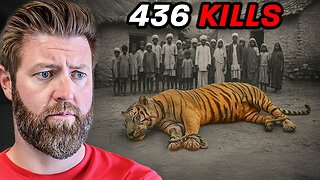Premium Only Content

Jimi Hendrix - The Wind Cries Mary (Live in 1967)
James Marshall "Jimi" Hendrix (born Johnny Allen Hendrix; November 27, 1942 – September 18, 1970) was an American guitarist, songwriter and singer. Although his mainstream career spanned only four years, he is widely regarded as the greatest and one of the most influential electric guitarists in the history of popular music, and one of the most celebrated musicians of the 20th century. The Rock and Roll Hall of Fame describes him as "arguably the greatest instrumentalist in the history of rock music.
Born in Seattle, Washington, Hendrix began playing guitar at age 15. In 1961, he enlisted in the US Army, but was discharged the following year. Soon afterward, he moved to Clarksville, then Nashville, Tennessee, and began playing gigs on the chitlin' circuit, earning a place in the Isley Brothers' backing band and later with Little Richard, with whom he continued to work through mid-1965. He then played with Curtis Knight and the Squires before moving to England in late 1966 after bassist Chas Chandler of the Animals became his manager. Within months, Hendrix had earned three UK top ten hits with his band the Jimi Hendrix Experience: "Hey Joe", "Purple Haze", and "The Wind Cries Mary". He achieved fame in the US after his performance at the Monterey Pop Festival in 1967, and in 1968 his third and final studio album, Electric Ladyland, reached number one in the US. The double LP was Hendrix's most commercially successful release and his only number one album. The world's highest-paid rock musician, he headlined the Woodstock Festival in 1969 and the Isle of Wight Festival in 1970 before his accidental death in London from barbiturate-related asphyxia in September 1970.
Hendrix was inspired by American rock and roll and electric blues. He favored overdriven amplifiers with high volume and gain, and was instrumental in popularizing the previously undesirable sounds caused by guitar amplifier feedback. He was also one of the first guitarists to make extensive use of tone-altering effects units in mainstream rock, such as fuzz distortion, Octavia, wah-wah, and Uni-Vibe. He was the first musician to use stereophonic phasing effects in recordings. Holly George-Warren commented: "Hendrix pioneered the use of the instrument as an electronic sound source. Players before him had experimented with feedback and distortion, but Hendrix turned those effects and others into a controlled, fluid vocabulary every bit as personal as the blues with which he began.
-
 6:49
6:49
Classic Rock Live Music (High Quality Audio)
13 days agoSavatage - Starlight - I Am (Live in Oberhausen, Germany 2025) Video
158 -
 16:24
16:24
Forrest Galante
4 hours ago6 Deadliest Man Eaters to Ever Exist
23.5K3 -
 10:14
10:14
MattMorseTV
9 hours ago $10.78 earnedThe EU is in HOT WATER.
89.9K53 -
 LIVE
LIVE
The Rabble Wrangler
1 day agoPUBG with The Best in the West!
542 watching -
 3:57:19
3:57:19
EvilT4000
7 hours ago $4.98 earnedSaturday.....🟢For energy and focus click my Dubby link!
30.6K3 -
 3:02:55
3:02:55
SlingerGames
4 hours agoSpartan Night - Halo and More | Creator for @SELFMADEGGS
20.2K -
 3:57:49
3:57:49
Mally_Mouse
10 hours agoSpicy Saturday!! - 10k CELEBRATION! - Let's Play: Labyrinthine
34.4K1 -
 37:09
37:09
The Mel K Show
11 hours agoMel K & Dr. Kirk Moore | A Doctor’s Oath: Doing What is Right No Matter the Cost | 7-26-25
32.4K15 -
 LIVE
LIVE
Cewpins
5 hours agoCuphead while BLAZED🔥420💨710🍃!MJ
51 watching -
 11:09:40
11:09:40
MDGgamin
13 hours ago🔴LIVE - TARKOV & ARMA - Shots For Subs Saturday!!! - Chilling & Chatting - #RumbleTakeover
5.46K